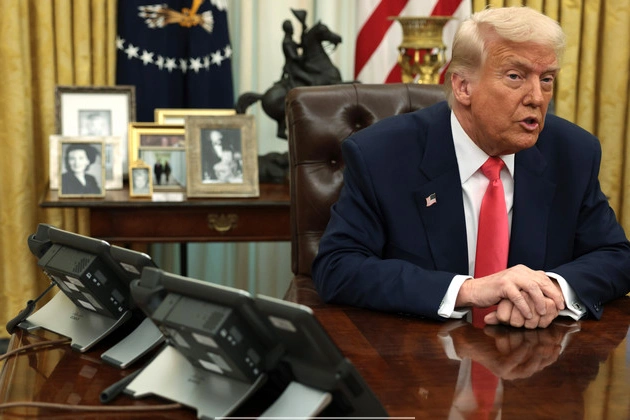
Judge Cannon skeptical of Garland’s plan to show Smith report on classified docs case to lawmakers
FORT PIERCE, Florida — A federal judge expressed skepticism over Attorney General Merrick Garland’s intention to reveal special counsel Jack Smith’s report on the dismissed criminal case against President-elect Donald Trump for hoarding classified documents to lawmakers.
U.S. District Judge Aileen Cannon, a Trump appointee, cast doubt on the necessity of sharing the report with congressional leaders before Trump’s inauguration on Monday. She also probed the Justice Department’s measures to maintain confidentiality and prevent the disclosure of grand jury secrets in the report.
The hearing followed the release of the first volume of Smith’s report, focusing on Trump’s election interference, while the second volume, concerning classified documents at Mar-a-Lago, remains withheld as DOJ seeks to revive charges against Trump’s former associates.
During the hearing, Cannon questioned the rush to disclose the report, particularly before the conclusion of the criminal proceeding. She sought a compelling reason for the immediate disclosure.
Garland’s commitment to transparency and historical practices of sharing special counsel reports with Congress were cited by Justice Department attorney Elizabeth Shapiro. However, Cannon remained unconvinced of the necessity for the current timing.
Shapiro acknowledged the limited time Garland had over the report, given the impending replacement by an acting attorney general. She emphasized the stringent conditions proposed for congressional leaders to access the report, ensuring confidentiality.
Trump’s legal representatives raised concerns about potential leaks and the inability to enforce confidentiality pledges made by lawmakers. They argued that political opponents of Trump could exploit the information disclosed.
Cannon scrutinized the unilateral decision to withhold certain information in the report, including details previously claimed under attorney-client privilege. The absence of key special counsel office representatives further complicated the proceedings.
Trump’s lawyers emphasized the political motives behind the disclosure and the distraction it posed to Trump during the transition period. They questioned the unprecedented nature of releasing the report while legal actions were pending.
The ongoing legal battle surrounding the report reflects the contentious nature of the case and the power dynamics between the Justice Department and the incoming administration.
Garland’s efforts to showcase transparency may face further scrutiny as the legal proceedings evolve, highlighting the intersection of law, politics, and accountability in high-profile investigations.















